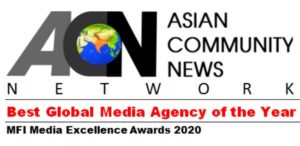Great powers pressurizing small, medium countries to take sides as Asia Pacific turns the latest battleground for supremacy: Vietnam
NEW DELHI: Caught in the middle of increasing rivalry among the world’s great powers, the small and medium countries like Vietnam are being pressurized to take sides. Also as the tension mounts further in the Asia Pacific region which has become the latest battleground for competition for primacy, the small and medium countries are facing push and pull from different sides.
Pham Sanh Chau, Ambassador of Vietnam in India flagged this concern recently while participating in a webinar “Vietnam in the Emerging Geopolitics of the Indo-Pacific” organized by the Centre for Vietnam Studies recently.
Vietnam is the Chair of Association of Southeast Asian Nations (ASEAN) for 2020 and the theme of its ASEAN Chairmanship is “Cohesive and Responsive”. The other nations that form the part of ASEAN include Indonesia, Thailand, Malaysia, Singapore, Philippines, Brunei, Cambodia, Myanmar, and Laos.
“Small and medium-sized countries like Vietnam, are facing push and pulls from different directions. Due to power asymmetry, no country wishes to come in confrontation with great powers directly, nor anyone wants to compromise their legitimate interests. Pressing on taking a side, which Vietnam and any other ASEAN country doesn’t want, keeps increasing. Vietnam and ASEAN wish to build inclusive, open transparent regionalism,” said Chau without naming any particular great powers like USA, China, India, or others.
According to Vietnam since the Asia-Pacific region had many attributes to become a new center of gravity due to its importance in the world’s economy, the region had become a key battleground for competition for primacy, and the small and medium-sized countries were put between rock and hard place.
The ambassador said the rise and prevalence of the concept Indo-Pacific in strategic thinking involved a number of key partners in the region namely the USA, Japan, Australia, France, also India, and the UK.
 “ASEAN countries as a group reflect the new geopolitics in the region. Despite different interpretations, the shift of Asia Pacific to Indo-pacific is indicative of the rise in geopolitics importance of India and the Indian Ocean region. It also reflects the link between the two oceans namely the pacific and the Indian Ocean, and the two regions between the pacific- Asia through Southeast Asia.”
“ASEAN countries as a group reflect the new geopolitics in the region. Despite different interpretations, the shift of Asia Pacific to Indo-pacific is indicative of the rise in geopolitics importance of India and the Indian Ocean region. It also reflects the link between the two oceans namely the pacific and the Indian Ocean, and the two regions between the pacific- Asia through Southeast Asia.”
Chau said that the COVID-19 pandemic was not the course for the change but a factor that had actually hastened some existing trends and further eroding the trust among major powers.
“New idea alignment arises amid the crises, for example, Group 7 plus, Quad Plus, G 10 or G 11, or D 10. It is one’s hope as well as mine as to what is going on and what will unfold in the region in the time to come,” the ambassador added.
While laying stress on a number of new developments, Chau said the power rivalry between great powers had entered a new phase and it was more dangerous. This rivalry between the major powers now stretches to the realm of ideology and model of governance which also involves some element of nationalism and populism, which also explains why there is an increasing tension of Hong Kong, G5, handling of the pandemic, etc.
“The competition keeps expanding, spilling from one sector to another, from politics to hi-tech, from trade to finance, from military buildups to standoff at actual hotspots. The risk of confrontation is significantly higher. A range of punitive actions has been put in place, for example, bans on apps, visa restrictions, and tariff imposition. It’s not clear whether it is decoupling or the new cold world has taken shape,” Chau added.
To be specific from an Indian point of view, it comprised at least 38 countries that shared 24 percent of its area and 65 percent of the world’s population, around 62 percent of world GDP, and 46 of the world merchandise traded.
The ambassador said the intense competition among great powers adversely impacted the international security environment. Vietnam is now facing enormous challenges in its conducting foreign policy with independence, self-reliance, diversification, and multilateralism. There are several key challenges. East Asia which is critical to Vietnam security and development environment has been destabilized by unlawful claims and unilateral actions. Its legitimate rights are violated in many circumstances.
Prof Kalyle A. Thayer, Emeritus Professor, University of New South Wales, Canberra too participated in the webinar while Dr. Shristi Pukhrem, Senior Research Fellow, India Foundation, New Delhi moderated the session.
Dr. Sonu Trivedi, Director, Swami Vivekanand Cultural Centre, Embassy of India in Seoul and the founding Director, Vietnamese Studies, Manish Kumar of Centre for Vietnam Studies, and other dignitaries from across the world participated in the webinar.



